Losses of $600 to $700 per head are already being felt in the feedlot industry as a result of Cargill’s temporary closure of its High River, Alta., beef processing plant. The company announced April 20 that it would idle the plant due to the COVID-19 pandemic and its effect on workers. As of today, 401 […] Read more
Stories by Barb Glen

Alta. NDP wants two more plants closed
Alberta’s NDP opposition today called for closure and immediate health and safety assessments at the JBS beef processing plant in Brooks, Alta., and the Olymel hog processing plant in Red Deer. The Cargill beef processing plant in High River, Alta., is shutting down after the death of one plant worker on the weekend and the […] Read more

Cargill closes High River beef plant
The Cargill meat processing plant in High River, Alta., which slaughters 40 percent of the cattle in Canada, announced temporary closure effective April 20. Date of reopening is unknown but the Canadian Cattlemen’s Association said it could mean industry losses of half a billion dollars by June if the closure lasts that long. Halt of […] Read more
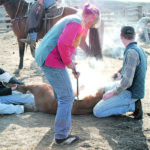
Pandemic threatens typical branding style
Before starting:
Cattle branding on the Prairies has always been a combination of necessity and tradition. The sound of cows bawling, the smell of burning hair, the sight of rope-wielding cowboys, the taste of the baked beans and beef at lunch — this sensory feast is part of the traditional western branding party. This year it will […] Read more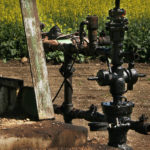
Alberta legislation sparks new concern over orphan wells
Hastily passed Alberta legislation has raised concerns about oil and gas well cleanup and landowners’ ability to obtain lease payments. The Alberta Liabilities Disclosure Project (ALDP) said Bill 12, which was given royal assent April 2, “politicizes wellsite cleanup, tramples landowner rights and still risks leaving taxpayers to foot the bill.” The bill was passed […] Read more
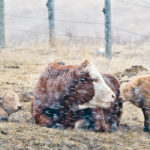
Insurance improvements requested
Canadian Cattlemen’s Association asks Ottawa for a way to reduce livestock insurance premiums during the pandemic
A cost-shared program to reduce livestock insurance premiums and a cattle set-aside program similar to one implemented during Canada’s BSE crisis are among options being fostered by the cattle industry as the COVID-19 pandemic continues. With ongoing cattle market volatility and an unpredictable future, the Canadian Cattlemen’s Association has been planning ways to protect all […] Read moreCOVID-19 virus changes farm landscape for U.S. producers
Worries about continued operations of meat packers, anguish over milk being dumped and a hope that people have a new appreciation for agriculture: the impressions of American farmers and ranchers about the impact of COVID-19 are much the same as those in Canada. A farm country update organized by the United States-based Farm Journal asked […] Read more
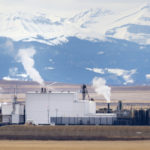
Cattle groups call for set-aside program in response to COVID-19 issues
The need for a set-aside program to manage orderly cattle slaughter has become more pressing with the loss of a shift at one of Western Canada’s largest federal processing plants. The Cargill plant at High River moved to one shift instead of two earlier this week in response to COVID-related issues involving workers ill with […] Read more

Alta. beef plant reduces shifts over COVID
The Cargill beef packing plant in High River, Alta., has announced a temporary shift reduction as it deals with issues surrounding COVID-19. The plant, which has capacity to slaughter 4,500 animals per day, will go from two shifts to one, markedly reducing the number of animals it can process. In an official statement on the […] Read more
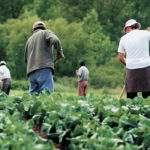
Isolation needs complicate foreign labour rules
News of exemptions that allow temporary foreign workers to come to Canada was greeted with relief by agricultural sectors that require the additional labour. However, government restrictions surrounding control of COVID-19 spread are adding complexity and expense to the process. Foreign workers are allowed to travel to Canada and will be assessed at their port […] Read more





